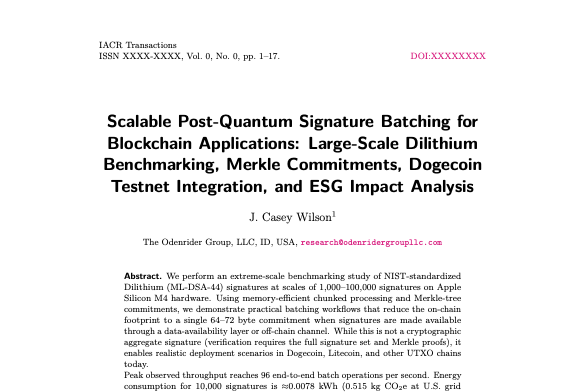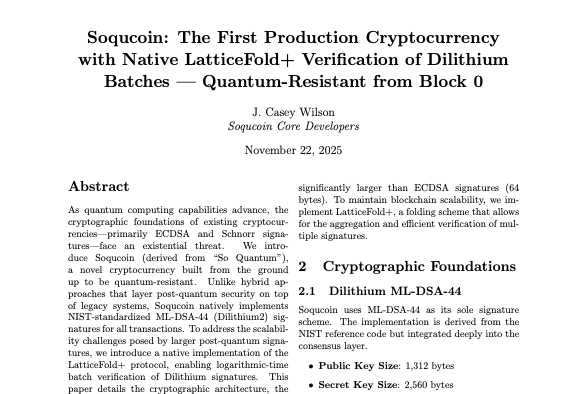Escape the rat race.
At Odenrider Capital, we love Bitcoin and the entire crypto industry. We have been running mining operations for years, so Proof of Work (POW) blockchains hold a special place in our hearts. With that in mind, and being keenly aware of technological advancements, we decided to pivot our focus onto some intense code grinding, AI collaboration, and cybersecurity expertise to develop the next-gen POW blockchain. We are proud of this cutting-edge development and are excited to present our research, impressive results, and the opensource repository for further analysis.
The name of this project is derived simply from “So-Quantum”, don’t let the name fool you, as it aims to turn POW blockchain industry on its head and prepare it for the future quantum world. Pull up a chair, clean your spectacles, and prepare to have your mind blown.


